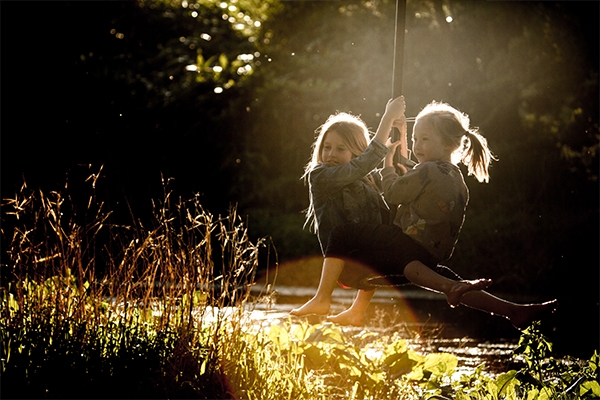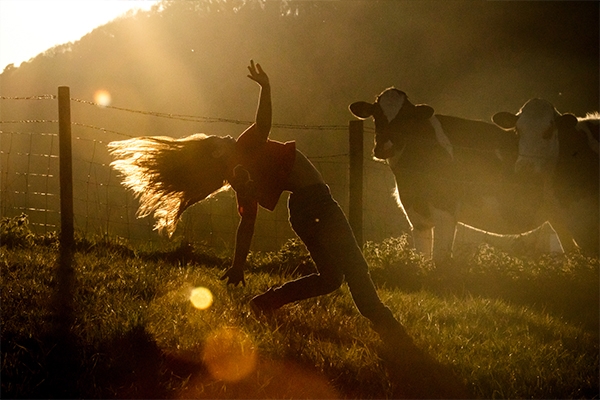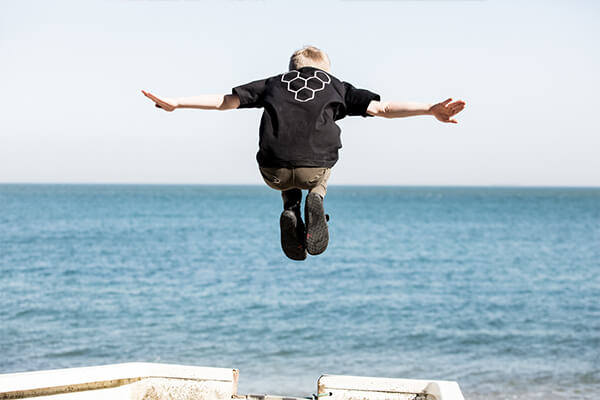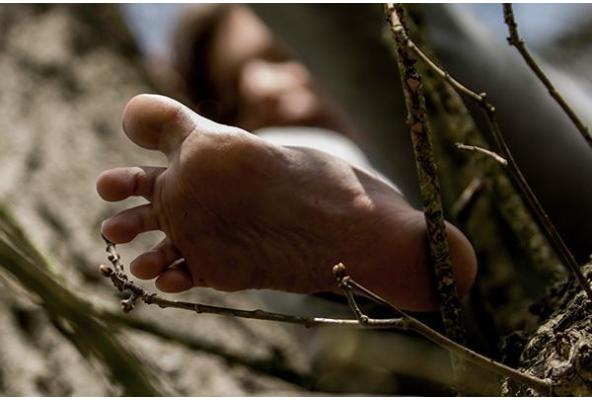As the days inch slowly shorter and the weather gets cooler (finally, some will say) in the northern hemisphere this means…. it’s back to school!
Most parents greet this time with a mix of relief as well as bittersweet sadness; the moment those long, hot days of seemingly endless play, boredom and imagination are over they take on rose-tinted spectacles, summer holidays might sometimes drive us crazy, but we all know and recognise how important they are.
Summer is what childhood memories are made of, and we all look back on our own summers as the halcyon days.
But kids really do need time off – we all do! Summer means less scheduled activities, less academics, less pressure and just less stuff to do and achieve. If you’ve been lucky enough to have kids who were able to roam wild and play freely outdoors this summer, the start of the new school year might come accompanied with a hefty dose of impending doom.


Why is this?
Because summer is the time when we see how kids flourish when they’re allowed to play free with their friends, preferably if they’ve been spending time outdoors. They learn teamwork, co-operation, trust in themselves and others as well as creativity. Maybe this summer they learnt to swim, or dive, or fish, or how to light a fire and set up a tent. Whatever they did, it had value and on that level, most schools just can’t compete.
Should school be like this? Should kids be cooped up all day in classrooms, having information pushed down their throats with endless tests and exams and pressure to achieve whatever it is our society is imposing on them?
An increasing clamour of teachers, therapists, parents and educational psychologists are saying what kids could have probably told us for years: LET KIDS PLAY!!!
Finally, however, it seems the tide is turning – albeit very slowly.


Scandinavian outdoor nurseries are growing steadily in number and the importance of time spent outdoors playing in nature is slowly increasing in mainstream primary schools across Britain and Europe.
There are also more and more educational alternatives, including forest schools where kids spend ALL their time outdoors engaged in child-led learning.
Dr Peter Gray, educational psychologist at Boston College in the US, says this is vital. In Psychology Today he writes, “Over the past half century or so (…) in some (…) developed nations opportunities for children to play, especially to play outdoors with other children, have continually declined. Over this same period, measures of psychopathology in children and adolescents—including indices of anxiety, depression, feelings of helplessness, and narcissism—have continually increased.”


The work of pediatric occupational therapist Angela Hanscom, founder of a nature-based development program in the US concurs. Her research has focused on the sensory limitations of kids which she believes is as a result of their increasingly sedentary, indoor, adult-controlled lives.
“If children are not given enough natural movement and play experiences, they start their academic careers with a disadvantage. They are more likely to be clumsy, have difficulty paying attention, trouble controlling their emotions, utilize poor problem-solving methods, and demonstrate difficulties with social interactions. We are consistently seeing sensory, motor, and cognitive issues pop up more and more in later childhood, partly because of inadequate opportunities to move and play at an early age.”


So as back to school looms, here are our top tips on keeping some of that barefoot summer love alive:
- Try and not over-schedule kids too quickly with academic and extra-curricular activities – give them time to ease back into the school year.
- Give them time and space to be outdoors; find a park, some woods or even a small city garden will do!
- Find other parents who want to give their kids outdoor free time and join forces.
- Let them play barefoot where possible for that extra sensory stimulation.
- Don’t rush. It’s hard, but sometimes we need to slow down and listen: if all you have is one walk to school in the mornings with your kids, treasure it.

